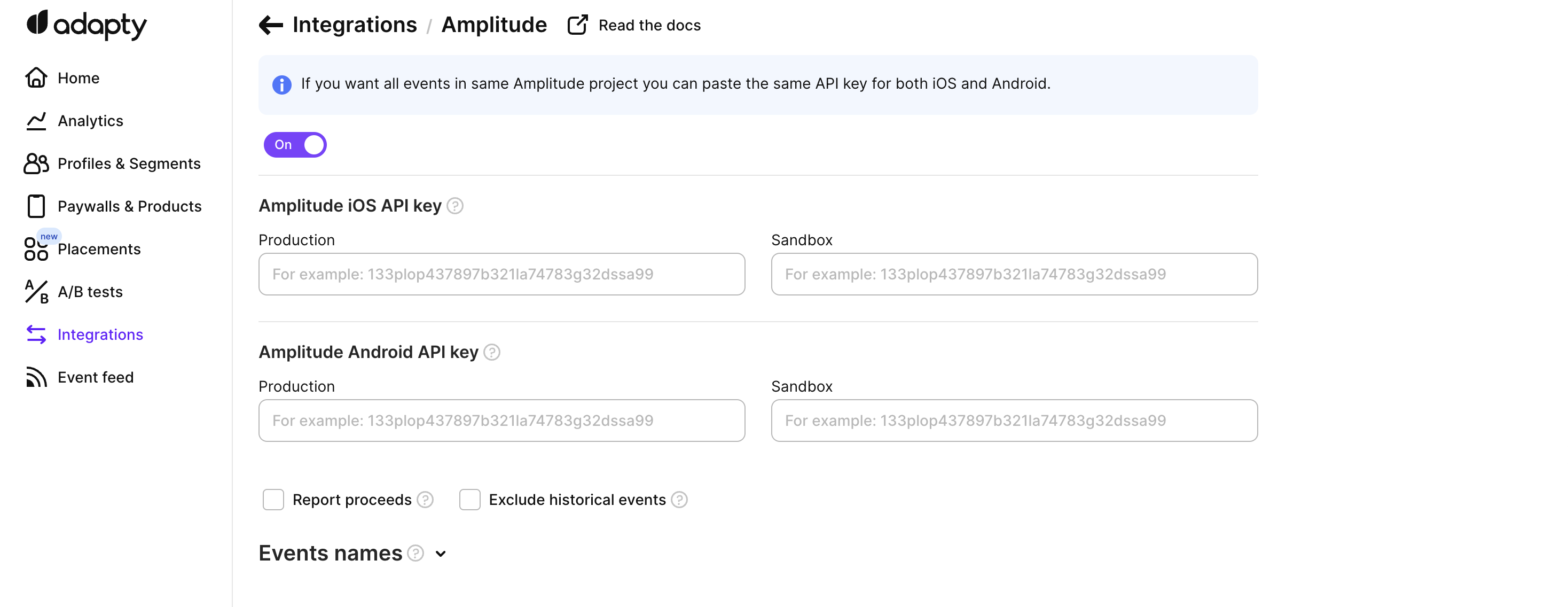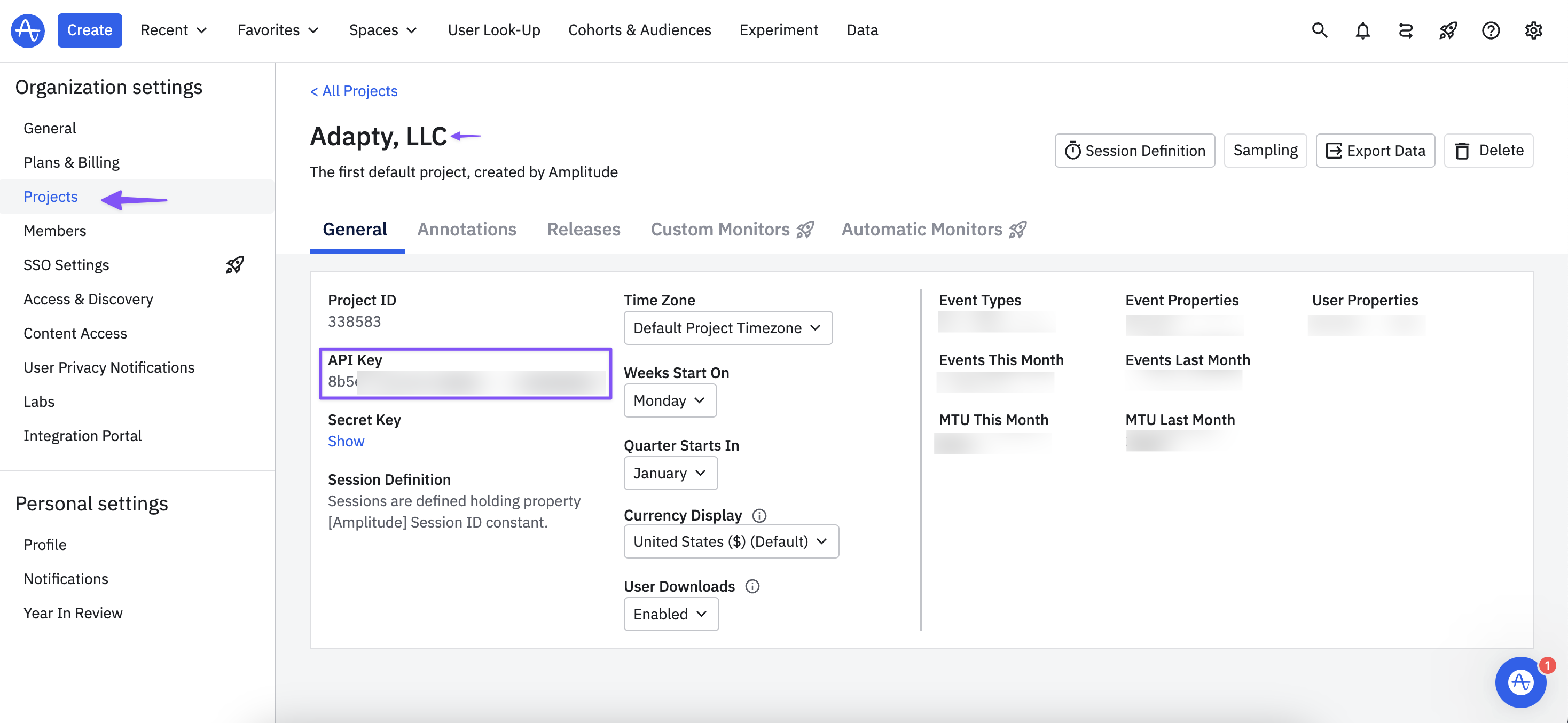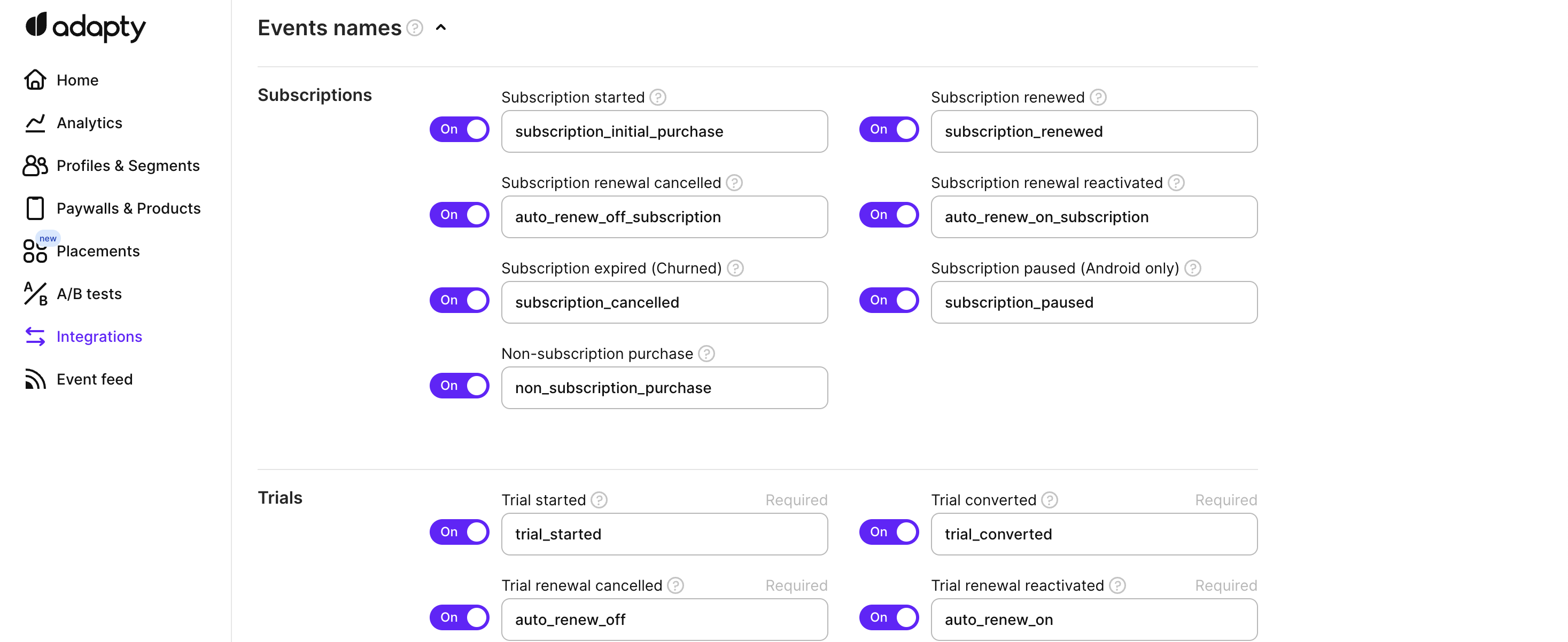Amplitude
Learn how to set up integration with Amplitude
Amplitude is a powerful mobile analytics service. With Adapty, you can easily send events to Amplitude, see how users behave, and then make smart decisions.
Adapty provides a complete set of data that lets you track subscription events from stores in one place and sends it to your Amplitude account. This allows you to match your user behavior with their payment history in Amplitude, and inform your product decisions.
How to set up Amplitude integration
To set up the integration with Amplitude, go to Integrations > Amplitude in the Adapty Dashboard, turn on a toggle from off to on, and fill out fields.

Amplitude integration in Adapty dashboard
You need to enter the API Key into Adapty. To find a token, go to your Project settings in Amplitude. In case you need help, refer to official docs.

Project Settings page in Amplitude dashboard
Along with events, Adapty also sends the subscription status and subscription product ID to the Amplitude user properties.
Events and tags
Below the credentials, there are three groups of events you can send to Amplitude from Adapty. Simply turn on the ones you need. Check the full list of the events offered by Adapty here.

Subscriptions, trials, issues events in the Adapty integration interface
We recommend using the default event names provided by Adapty. But you can change the event names based on your needs. Adapty will send subscription events to Amplitude using a server-to-server integration, allowing you to view all subscription events in your Amplitude dashboard.
SDK configuration
Use Adapty.updateProfile() method to set amplitudeDeviceId or amplitudeUserId. If not set, Adapty uses your user ID (customerUserId) or if it's null Adapty ID. Make sure that the user id you use to send data to Amplitude from your app is the same one you send to Adapty.
import Amplitude
let builder = AdaptyProfileParameters.Builder()
.with(amplitudeUserId: Amplitude.instance().userId)
.with(amplitudeDeviceId: Amplitude.instance().deviceId)
Adapty.updateProfile(params: builder.build())
//for Amplitude maintenance SDK (obsolete)
val amplitude = Amplitude.getInstance()
val amplitudeDeviceId = amplitude.deviceId
val amplitudeUserId = amplitude.userId
//for actual Amplitude Kotlin SDK
val amplitude = Amplitude(
Configuration(
apiKey = AMPLITUDE_API_KEY,
context = applicationContext
)
)
val amplitudeDeviceId = amplitude.store.deviceId
val amplitudeUserId = amplitude.store.userId
//
val params = AdaptyProfileParameters.Builder()
.withAmplitudeDeviceId(amplitudeDeviceId)
.withAmplitudeUserId(amplitudeUserId)
.build()
Adapty.updateProfile(params) { error ->
if (error != null) {
// handle the error
}
}
import 'package:amplitude_flutter/amplitude.dart';
final Amplitude amplitude = Amplitude.getInstance(instanceName: "YOUR_INSTANCE_NAME");
final builder = AdaptyProfileParametersBuilder()
..setAmplitudeDeviceId(await amplitude.getDeviceId())
..setAmplitudeUserId(await amplitude.getUserId());
try {
await adapty.updateProfile(builder.build());
} on AdaptyError catch (adaptyError) {
// handle error
} catch (e) {}
import { adapty } from 'react-native-adapty';
try {
await adapty.updateProfile({
amplitudeDeviceId: deviceId,
amplitudeUserId: userId,
});
} catch (error) {
// handle `AdaptyError`
}
var builder = new Adapty.ProfileParameters.Builder();
builder.SetAmplitudeUserId("AMPLITUDE_USER_ID");
builder.SetAmplitudeDeviceId(amplitude.getDeviceId());
Adapty.UpdateProfile(builder.Build(), (error) => {
// handle error
});
Updated 18 days ago